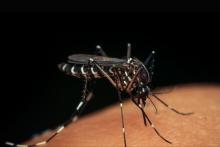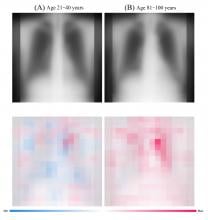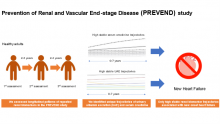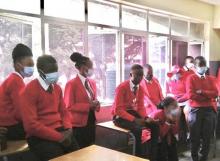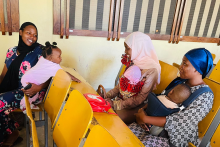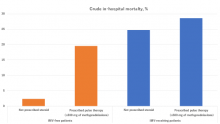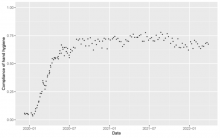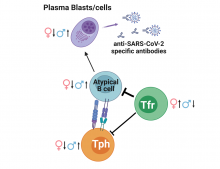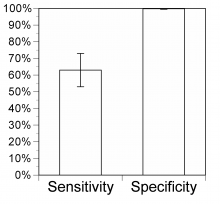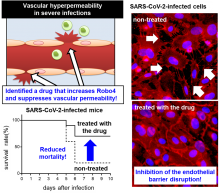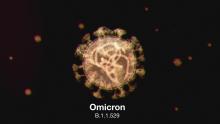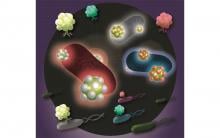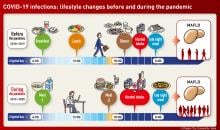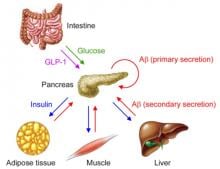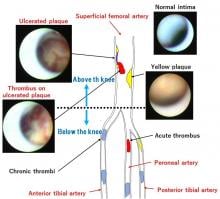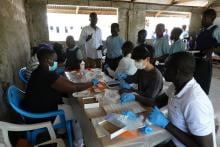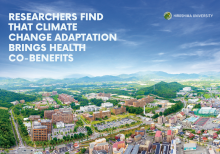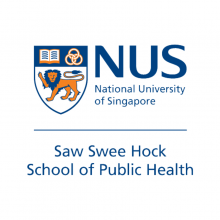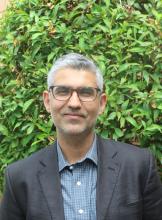Medicine & Healthcare Public health
News
03 Oct 2023
The researchers from Osaka University showed how two psychological factors, belief in just deserts (BJD) and human rights restrictions (HRR), differ across countries. BJD tended to be higher in Japan and lower in the UK, whereas HRR was higher in China and lower in Japan. Public health messages for high-HRR individuals could potentially be used effectively to reduce disease-related discrimination and prejudice.
04 Sep 2023
In recent years, an emerging zoonotic pathogen called E. albertii, transmitted by wild animals such as raccoons, has garnered attention due to its remarkable similarities to several strains of Escherichia coli (E. coli), including O157, and its potential to cause severe illness, particularly in children. A research group at Osaka Metropolitan University has developed a novel culture medium that allows for the selective cultivation of E. albertii from raccoon fecal samples. This enabled the successful isolation of E. albertii even from samples with very low quantities of this bacterium. Their findings are expected to further elucidate the bacteriological characteristics of E. albertii and to contribute to the control of foodborne illnesses.
23 Aug 2023
Osaka Metropolitan University researchers conducted a 5-year claims-based study of 655 non-frail or pre-frail older adults who were certified as having low care needs to investigate the relationship between the risk of frailty and two types of care services. The results showed that users of community-based adult care services had a 40% reduced risk of developing frailty compared to non-users. This suggests that utilizing appropriate support and services can prevent the progression of frailty.
16 Aug 2023
Osaka Metropolitan University scientists have developed an AI model that accurately estimates a patient’s age, using chest radiographs of healthy individuals collected from multiple facilities. Furthermore, they found a positive relationship between differences in the AI-estimated and chronological ages and a variety of chronic diseases, such as hypertension, hyperuricemia, and chronic obstructive pulmonary disease. In the future, it is expected that AI biomarkers will be developed to predict life expectancy, estimate the severity of chronic diseases, and forecast surgery-related risks.
01 Aug 2023
Researchers from Osaka University found that patients with persistently high levels of urinary albumin excretion in the long term are at high risk of new-onset heart failure. Preventive treatment associated with the lowering of urinary albumin excretion levels in these patients could reduce the risk of later heart failure or mortality.
19 Jul 2023
A joint research group at Osaka Metropolitan University conducted a survey on prevalence of obesity and factors associated with low obesity among 423 adolescents between the ages of 14 and 19 living in Harare, Zimbabwe. The results revealed that 15.8% were obese or overweight. The study also revealed that 27.1% of the participants had low obesity awareness, which was significantly related to parents/guardians' lack of formal education and insufficient knowledge about eating habits.
05 Jun 2023
App leads to better birth preparation for pregnant women
28 Apr 2023
Polycyclic aromatic hydrocarbons, in particular, lower the prognosis of ischemic strokes by causing inflammation in the brain.
27 Mar 2023
Researchers from Osaka University have found that repeated high-dose treatment, known as pulse therapy, with the steroid methylprednisolone reduces in-hospital deaths in COVID-19 patients who receive invasive mechanical ventilation, but not in patients who don’t receive invasive mechanical ventilation. These findings were only possible using appropriate statistical methods to remove bias from the data, which originally seemed to show that the opposite was true. These results can improve patient treatment and reduce COVID-19-related deaths worldwide.
15 Mar 2023
An Osaka University study investigated how the COVID-19 onset and media coverage affected hand hygiene compliance. Voluntary use of hand sanitizer in a hospital rose from 5% in December 2019 to 70%+ by August 2020. In the same period, TV coverage reached 7.7 hours/day on a national broadcaster. The study’s simulations found a significant relation between TV coverage and hand hygiene compliance, though no correlation between compliance and newly confirmed COVID-19 cases and deaths.
13 Feb 2023
Researchers from Osaka University have shown sex-specific differences in the immune response to COVID-19 infection. By identifying and analyzing the immune cell population in COVID-19 patients, they showed that infection results in a reduced ratio of circulating follicular T regulatory (cTfr) cells to a network of antibody-producing proteins, correlated with dysregulated antibody production. This cTfr cell reduction is more significant in males, providing cellular evidence for the observed association between increased risk and male sex.
30 Jan 2023
Researchers from Osaka University compared the sensitivity of rapid antigen tests (RATs) and polymerase chain reaction (PCR) tests for the Omicron variant of COVID-19 using data produced by the Japan Professional Football League. They found the comparative sensitivity of RATs for Omicron was not affected by the duration from the onset of symptoms to testing.
13 Jan 2023
Researchers led by Osaka University demonstrated the role of endothelial cell-specific protein Roundabout4 (Robo4) in the reduction of vascular permeability and mortality in mouse models of severe infection. The research team identified a drug inhibitor that increased Robo4 expression and reduced mortality in sepsis and SARS-CoV-2 mouse models of infection. These findings may aid in the development of drugs to reduce the mortality rate of severe infectious diseases.
06 Dec 2022
World's first research into relationship between rich-in-biodiversity garden greenery and health/well-being launched by University of Tokyo and Sekisui House Ltd.
22 Nov 2022
New study finds that "HUG Your Baby" — a program developed to help parents understand their baby’s behavior — could help reduce postpartum depression in mothers.
31 Oct 2022
Call To Action urges G20 member countries and partners to mobilize adequate resources to close the TB funding gap and save lives.
10 Oct 2022
The SARS-CoV-2 Omicron variant escapes the immune response better than its coronavirus ancestors, but has also facilitated our transition to a society that can live with COVID-19.
29 Sep 2022
A simple and economical method of detecting SARS-CoV-2 viral loads in wastewater with high sensitivity has been developed, expanding the use of wastewater-based epidemiology for tracking the virus in populations.
29 Sep 2022
Linked lanthanides shine light on crystal engineering, New technique reveals hidden genome, Red, white and blue alerts for dangerous bacteria & Windows gain competitive edge over global warming. Read all in the September's Editor's Choice plus this month's Asia Research News 2022 magazine pick - Floating sensors to gather ocean data.
29 Aug 2022
Osaka Metropolitan University scientists developed a simple, rapid method for identifying food poisoning-inducing bacteria based on color differences in the scattered light of composite structures consisting of gold, silver, and copper nanoparticles and polymer particles. Using these composites as test labels bound to specific bacteria, the researchers detected food poisoning bacteria E. coli O26, E. coli O157, and S. aureus as white, red, and blue scattered light, respectively, under the microscope. This new method enables simultaneous identification of multiple bacterial species within one hour, significantly shortening the usual 48-hour time requirement for conventional bacterial tests.
20 Jul 2022
The quest for the ideal COVID-19 policies to contain outbreaks without border closures that harm the travel industry led researchers to one protocol.
18 May 2022
A study by Japanese researchers showed that getting a mild case of COVID-19 doesn’t translate to lower chances of becoming a long-hauler. And that sex and the presence of long-term symptoms are risk factors for post-COVID psychological distress.
25 Mar 2022
In a retrospective study drawing data from 973 participants between 2018 and 2020, researchers find that cases of metabolic dysfunction-associated fatty liver disease (MAFLD) increased from 22 pre-pandemic to 44 mid. Additionally, univariate and multivariate analysis of lifestyle habits reveal late-night meals pre-pandemic and increased alcohol intake mid-pandemic as independent lifestyle predictors of developing the disease.
15 Mar 2022
A research group has revealed that amyloid-β (Aβ) detected in blood is secreted from peripheral tissues (pancreas, adipose tissue, skeletal muscle, liver, etc.) that are sensitive to glucose and insulin. Also, that Aβ secreted from peripheral tissues acts as a regulator on pancreatic β-cells to suppress insulin secretion. The results of this study indicate that blood Aβ levels fluctuate significantly with diet, and special care should be taken when using blood samples as a diagnostic marker for Alzheimer's disease, such as taking blood samples during fasting.
18 Feb 2022
New research finds the extent of arterial occlusive disease in the popliteal artery correlates with the prognosis of peripheral arterial disease in lower limbs. The study of 31 patients who underwent percutaneous angioplasty of femoropopliteal artery (FPA) proved for the first time that ulcerated plaque observed in the FPA during angioscopy is the source of the thromboembolic mechanism in the popliteal artery.
16 Nov 2021
Scientists are turning to genomics to better understand the epidemiology of malaria and to inform control and elimination interventions and strategies. In the Lake Victoria region of Kenya, malaria burden remains very high despite more than a decade of intense control activities. A team of researchers from Osaka City University, Nagasaki University, London School of Hygiene and Tropical Medicine, and Mount Kenya University generated whole Plasmodium falciparum genome sequences from the lake region. Their analyses revealed that malaria parasites from this region appear distinct from other parasites from East Africa, while frequencies of known drug resistance markers were similar to those in other East African parasite populations. Their findings will help to develop improved surveillance tools to determine parasite transmission routes and aid clinical disease management.
01 Oct 2021
Paris, 29 September — UNESCO and the L'Oréal Foundation are unveiling the winners of this year’s International Prize for Women in Science, which honours five eminent women scientists with exceptional careers from the five regions of the world, as it has done annually since 1998.
29 Sep 2021
Geneva, 28 September 2021 – The Stop TB Partnership today released new data showing how the COVID-19 pandemic and dismally low levels of funding represent the main barriers to achieving the United Nations Sustainable Development Goals of ending TB by 2030.
03 Sep 2021
The COVID-19 pandemic has increased attention on links between public health and the planet’s health — areas traditionally addressed in separate science and policy circles. Now, an international research collaboration conducted the first comprehensive review of urban climate change responses and potential human health improvements.
Events
07 Apr 2021 to 09 Apr 2021
Join us from 7 to 9 April 2021 at the Precision Public Health Asia 2021 Conference to find out how precision public health can improve health outcomes and equity to deliver ‘personalised’ public health.
Researchers
Epidemiologist working with health of marginalized groups, including migrants, informal houses residents, homeless and women caregivers.
Physician-researcher; Primary area of research: Ageing, at the individual and the population level; Geographical focus: Singapore, with some work in other Asian countries.
Ilham Akhsanu Ridlo is an early-career researcher and assistant professor at Indonesia's Faculty of Public Health, Universitas Airlangga. He is a Ph.D. student at Institut für Kommunikationswissenschaft und Medienforschung (IfKW), Ludwig-Maximilians-Universität München. Ilham believes science communication is crucial in bridging the gap between research practice and health policy implementation. His research area concerns how scientists and journalists influence decision-makers to understand scientific uncertainty in public health.
Professor St-Hilaire is associate head and professor at the Department of Infectious Diseases and Public Health, City University of Hong Kong (CityU). She has extensively researched fish nutrition and diseases, including treatment efficacy, and has helped investigate fish disease outbreaks.
Dr Singh is working as an Additional Professor of Radiology. Besides specializing in medical Imaging, he has received certifications in Global Health, Science Diplomacy and Biomedical Research. His areas of interest and expertise are as follows: Radiology, Nuclear Medicine, Medicine, Health, Public Health, Global Health, Health Policy, Health Systems, evidence-based healthcare and Healthcare leadership.
A PhD student in the health sciences department, studying population studies in health. A graduate student researcher at the University of Lethbridge, under the guidance of Dr. Olu Awosoga and Dr. Hendrika Beaulieu. Majoring in Indigenous health and conducting research on perceived mental and general health status of Indigenous women with chronic illnesses, relating to past experiences of discrimination, trauma and racism. Also focusing on the impact of health policies on the perception of wellness and health. Prior to coming to Canada, worked under the supervision of the UNHCR in Malaysia in project on the access and utilization of healthcare services among refugees. Holds an MSc in public health from the International Medical University and a Bachelor degree in Dental Surgery from Sana’a University.
Dr. Brian Man Yu Bon is currently serving as an Assistant Professor in Department of Science and Environmental Studies, The Education University of Hong Kong.
Suraj Bhattarai is a global health specialist and tropical medicine physician with research interests in infectious disease epidemiology and surveillance, health systems, and urban health. He is a co-founder and research fellow at the Global Institute for Interdisciplinary Studies, a Kathmandu-based academic institute that promotes and conducts interdisciplinary research. He is a member of Global Young Academy and an Alumni steering committee member of IAP-Young Physician Leaders Programme. He obtained medical training in Nepal and masters in Tropical Medicine & International Health from the LSHTM, UK.
Dr NK Prasanna is currently working as Sr. Scientist & Editor, Indian Journal of Biochemistry & Biophysics, Research Journals Division at CSIR-National Institute of Science Communication and Policy Research, New Delhi. Before joining CSIR (NIScPR), she was at IIT Guwahati. Dr Prasanna completed her Ph.D from Institute of Medical Sciences, Banaras Hindu University, Varanasi.
In CSIR-NIScPR, She served one important flagship journals viz. Indian journal of Biochemistry and Biophysics (IJBB; ISSN: 0301-1208) It is pertinent to mention that the journal ranks first among all the NIScPR journals as per the available Journal Metrics by international agencies such as Thomson Reuters and Scopus. Details of remarkable academic achievements of IJBB which she spearheading, both nationally and globally. The Indian journal of Biochemistry and Biophysics (IJBB) is a premier SCI-indexed bimonthly peer-reviewed research journal that publishes original research articles in the subject area of biochemistry and biophysics
Prof. Mahmudur Rahman is an Infectious Disease Epidemiologist. He is enlisted in the IHR roster of Experts and included in the Emergency committees of MERS CoV, Ebola and Poliomyelitis. He is also the Current Chair and member in different committees of WHO.
Giants in history
Sorry, nothing coming up for this discipline


